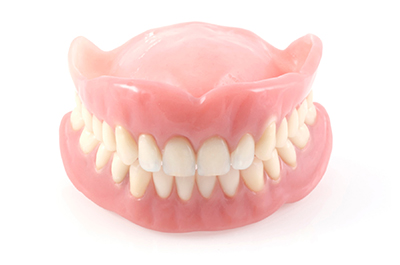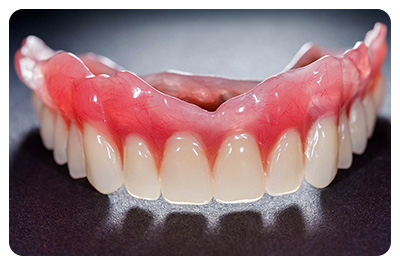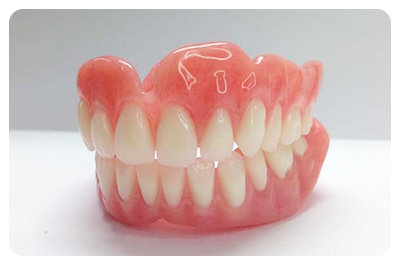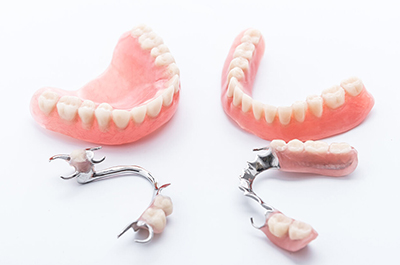Looking for a complete denture treatment in the best dental clinic in addis ababa city ? Welcome our dental clinic in Addis Ababa, we offer comfortable, aesthetic and durable complete denture treatments designed for diverse types of missing dentition.
You can contact our dental clinic in Addis Ababa by call
What is a complete removable denture
 A complete removable denture is recommended when there is a total absence of teeth. Often called “dentures”, a complete removable prosthesis is a prosthesis that :
A complete removable denture is recommended when there is a total absence of teeth. Often called “dentures”, a complete removable prosthesis is a prosthesis that :
- replaces all the upper or lower teeth,
- can be easily removed by the patient on a daily basis.
The complete denture is held in place in the mouth by the suction effect created by the saliva that accumulates between the denture and the gum.
If the complete denture is made on the upper jaw, it will rest on both the gum and the palate. For the lower jaw, it will rest on a good part of the gum. It will however be less stable
in the lower jaw because of the movements of the tongue and the smaller surface of your arch, which explains the use of special “glue” by the patients.
Related topic : Prosthodontic Treatments in Addis Ababa
To make a complete removable prosthesis, two types of bases exist:
- Pink acrylic resin: its color imitates the natural gum, and it is the material of choice; it is the most frequent case.
- Metal base: the metal structure is very thin, lighter than the acrylic base and more robust. However, it is often used to reinforce a complete denture with an acrylic base.
Artificial teeth mounted on the prosthesis are nowadays mainly made of resin (acrylic) in the color of natural teeth. Ceramic teeth are used much less frequently today.
Price of complete dentures
Your dental professional at our dental clinic in Addis Ababa for will inform you about the cost of your removable prosthesis;
However, it is good to know that a removable prosthesis is less expensive than treatment plans involving dental implants.
How is a complete removable prosthesis made?
 As explained above, a full denture replaces all the teeth in an arch. Without treatment, eating properly will become difficult, and a nutritional imbalance may occur.
As explained above, a full denture replaces all the teeth in an arch. Without treatment, eating properly will become difficult, and a nutritional imbalance may occur.
Psychological consequences are also common due to the discomfort and handicap felt when smiling.
Once the treatment plan has been validated, your dentist will need to make several appointments in order to make your complete dentures.
Your treatment always begins with an examination of the mouth and arches and the taking of several impressions to obtain all the necessary information :
- shape of the gums,
- position of the internal structures (brakes, tongue, soft palate…),
- dimensions of the jaw,
- choice of teeth (color, shape, material),
- the base material according to the patient’s situation and preferences.
The prosthesis will then be made in the laboratory within 7 to 15 days.
The next step is the fitting of the denture waxes by your dentist; this fitting allows you to validate the function and aesthetics of the denture and to make any necessary adjustments.
It is important to note that several fittings may be necessary.
The waxes will then be sent back to the laboratory for “baking” and finishing.
Finally, the fitting appointment is scheduled. Your dentist will proceed with the placement and adjustment of your removable dental prosthesis.
While positioning it in your mouth, he will make sure that it fits well.
He will make you perform certain tests to make sure that it does not bother you and that you can open and close your mouth, eat, drink, smile, laugh, etc. without making it fall out.
The prosthetic rehabilitation must allow these gestures to be performed in the most natural way possible.
Checks and adjustments of a complete prosthesis can last several weeks, and your dentist will schedule several adjustment/check-up sessions.
Immediate full dentures
 If the clinical situation requires tooth extractions before a full denture can be made, your dentist may suggest an immediate full denture to allow you to eat properly right away and not suffer any aesthetic damage during the healing period.
If the clinical situation requires tooth extractions before a full denture can be made, your dentist may suggest an immediate full denture to allow you to eat properly right away and not suffer any aesthetic damage during the healing period.
The immediate prosthesis will be made before the extractions by taking measurements of the jaw using impressions.
However, this technique has a significant disadvantage: it must be adjusted more frequently because the gum and jawbone frequently change shape and size during the healing period.
The prosthesis can then become uncomfortable, even hurtful, and not fit properly.
Following extractions, a waiting period of 2 to 4 months is recommended by your dentist before considering permanent dentures.
Advantages of a complete removable prosthesis
- The fabrication of a complete removable prosthesis has a low cost compared to alternative treatments such as dental implants (titanium or ceramic);
- The fabrication period is much shorter than the time required to complete some other alternative treatments such as dental implants;
- Complete removable prosthesis is a non-invasive treatment plan as no surgical procedures are required, unless tooth extractions are necessary;
- Another more permanent treatment plan could be considered in the future if you decide to stop wearing your complete removable prosthesis and if your medical condition allows it. In other words, wearing a removable denture is “reversible” under certain conditions;
- Your smile (final result) after the removable prosthesis has been placed in your mouth is predictable by the color and shape given to the teeth of the prosthesis;
- You can remove the complete prosthesis and put it back in place afterwards;
- Complete Removable prostheses can be readjusted as needed to ensure that they are still comfortable;
- The complete removable prosthesis helps restore normal chewing function and speech.
Ready for a complete removable denture treatment ? Call our dental clinic now
Recommendations for after a complete removable prosthesis treatment
The following tips are applicable only when dental extractions are performed prior to the placement of a complete removable prosthesis:
- Avoid smoking during the healing period. Cigarette smoking can compromise the healing of the extraction site;
- For the same reasons, avoid drinking alcohol during the healing period.
- It is essential to follow the advice provided by your oral health care professional regarding post-operative care, i.e. after the extraction of the teeth, in order to facilitate healing and reduce the risk of infection. See the Simple Extraction and Complex Extraction pages for more information.
- If no extraction was performed before the denture was placed in the mouth, and if the denture is well-adjusted, symptoms should be minimal.
Drawbacks of a complete removable prosthesis
- Food can get lodged under the denture, causing discomfort;
- The complete denture installed in the lower jaw may be less stable than the one in the upper jaw. This instability is caused by the smaller shape of the gums, tongue movements and insufficient saliva, which hinders the suction effect necessary for the denture to stay in place;
- You should allow for a period of adjustment of varying length, which can average one month or more when you first wear a full denture. During this period, changes in the way you eat and speak are necessary. Your taste may also be slightly altered when a denture is worn on the upper jaw because of the covering of the palate by the denture;
- Gum injuries can occur if the denture is not properly fitted or if changes to the gum or jaw occur over time, such as sagging. A removable prosthesis does not use the alveolar bone, the bone that supports the teeth and gives shape to the gums, so the gums tend to recede (disappear). A reline (reshaping of the base) of the denture may then be necessary to restore the stability and comfort of your denture, while ensuring that the alveolar bone does not lose too much volume;
- It can be difficult to play a wind instrument with a removable denture;
- The lifespan of a removable prosthesis is about 5 years, sometimes a little more, but it rarely exceeds about 10 years. This results in additional costs related to the replacement of damaged teeth, adjustments to the prosthesis, relining or complete replacement of the prosthesis when it is too worn. In this regard, there are signs that the denture should be replaced or repaired, which is why it is important to have it checked regularly by your dentist;
- Undesirable health consequences can occur with a denture that is too old, such as irritated gums that hurt, digestive problems caused by more difficult chewing, all kinds of head, neck and ear aches and even jaw joint problems, premature aging of your face, etc.
Taking care of your complete denture
To ensure the longevity of your denture and to maintain the health of your mouth, it is important to follow the following recommendations, or those provided by your dentist:
- Brush your gums and dentures at least twice a day or after each meal with a soft-bristled toothbrush. Plaque and tartar can build up just as easily on removable dentures as on natural teeth. It is therefore important to observe rigorous hygiene measures in order to reduce the risk of developing cavities or certain gum diseases such as gingivitis;
- If your gums become irritated, you can run your toothbrush under hot water to soften the bristles;
- Avoid using ordinary toothpaste or household cleaners to clean your dentures, as the abrasive agents contained in toothpaste could prematurely damage the dentures and shorten their life. Gels, non-abrasive toothpastes and mild soap are good alternatives;
- Flossing can be used to remove food debris from between the denture’s artificial teeth;
- Do not use mouthwash that contains alcohol, as it can dry out your mouth and promote plaque and tartar build-up;
- Remove your dentures every night and clean them by soaking them in a container containing a solution specifically designed for this purpose, which can be found in pharmacies. Removing your denture overnight allows your gums and mouth to breathe better and rest. Soaking the denture will soften plaque and tartar, which will be easier to remove during subsequent brushing. After the soaking period, you should brush and rinse your dentures thoroughly with water before putting them back in your mouth;
- Do not soak your denture in hot water, as this may deform it;
- Avoid wearing your denture for more than 24 consecutive hours. If you do not wear your denture for an extended period of time, soak it in lukewarm water to avoid drying out or deforming it;
- Be as careful as possible not to drop your prosthesis and handle it in such a way as to prevent deformation. It is recommended that you brush the denture over a sink filled with water or in which a towel has been placed to minimize the impact on the denture if you accidentally drop it while handling it;
Continue to visit your dentist regularly (one to two visits per year) for routine cleaning, as well as for the following reasons
- To detect other oral issues;
- To assess whether adjustments to your dentures are necessary;
- Evaluate the condition of your denture and determine if it needs to be replaced by a new one in the case of breakage, deformation, cracks, etc.
- Polishing dentures that have lost their luster over the years.
- The following foods should be avoided with a removable denture: sticky foods that could remain embedded in the denture or that could affect its stability, and hard foods that could break the denture.


